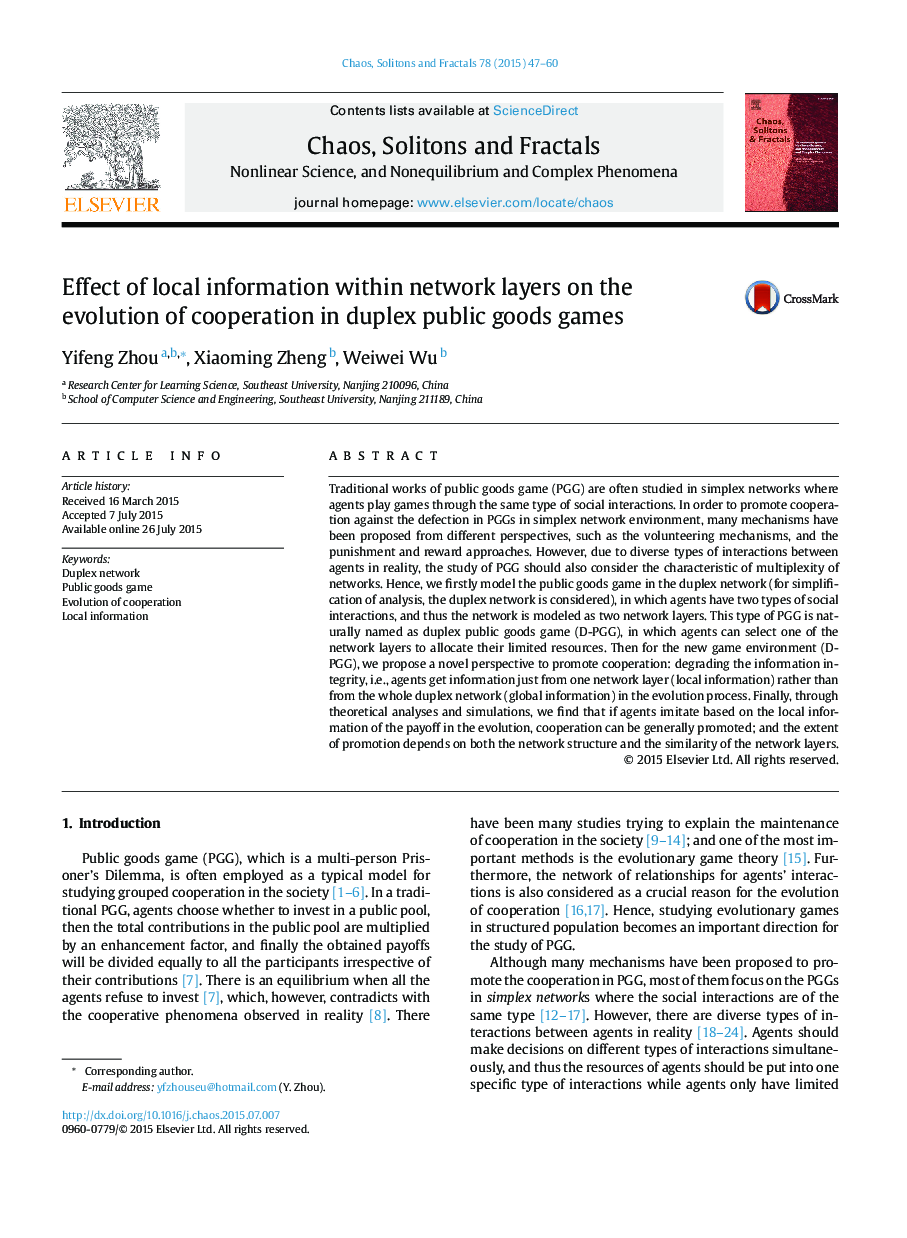| Article ID | Journal | Published Year | Pages | File Type |
|---|---|---|---|---|
| 1888521 | Chaos, Solitons & Fractals | 2015 | 14 Pages |
Traditional works of public goods game (PGG) are often studied in simplex networks where agents play games through the same type of social interactions. In order to promote cooperation against the defection in PGGs in simplex network environment, many mechanisms have been proposed from different perspectives, such as the volunteering mechanisms, and the punishment and reward approaches. However, due to diverse types of interactions between agents in reality, the study of PGG should also consider the characteristic of multiplexity of networks. Hence, we firstly model the public goods game in the duplex network (for simplification of analysis, the duplex network is considered), in which agents have two types of social interactions, and thus the network is modeled as two network layers. This type of PGG is naturally named as duplex public goods game (D-PGG), in which agents can select one of the network layers to allocate their limited resources. Then for the new game environment (D-PGG), we propose a novel perspective to promote cooperation: degrading the information integrity, i.e., agents get information just from one network layer (local information) rather than from the whole duplex network (global information) in the evolution process. Finally, through theoretical analyses and simulations, we find that if agents imitate based on the local information of the payoff in the evolution, cooperation can be generally promoted; and the extent of promotion depends on both the network structure and the similarity of the network layers.
